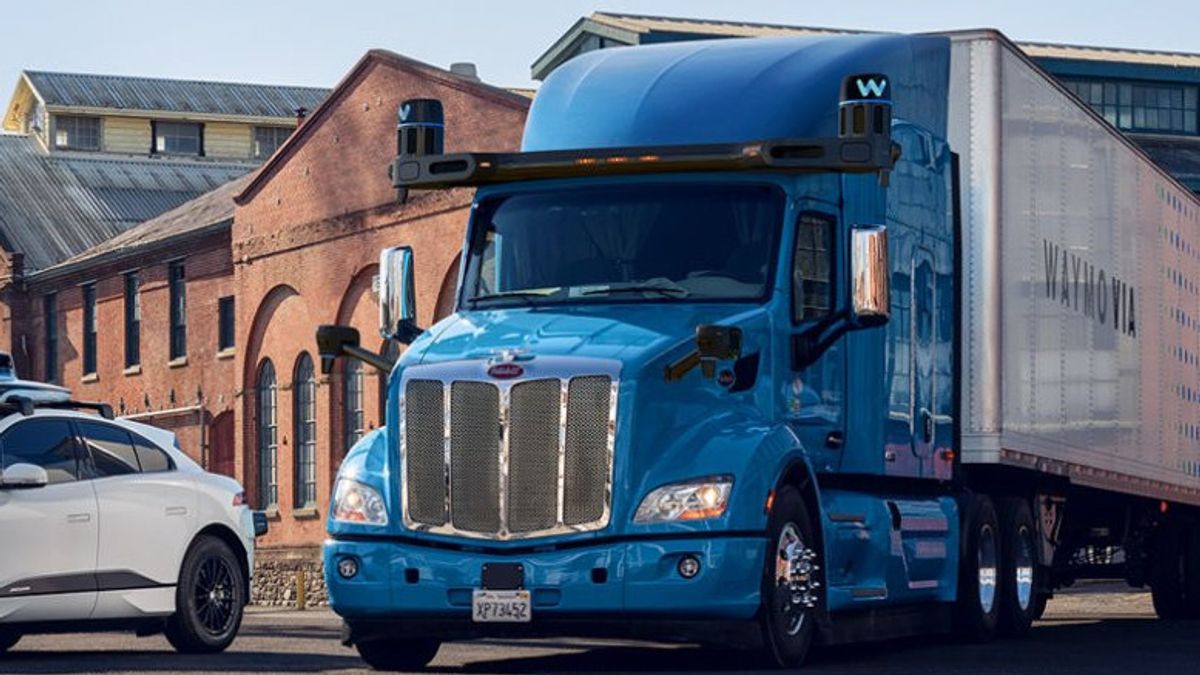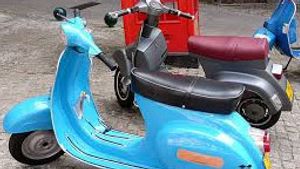JAKARTA - Waymo and Uber, former legal rivals and arch rivals in the autonomous vehicle space, are now working together to accelerate the adoption of driverless trucks. Waymo is integrating Uber Freight, the travel company's truck intermediary, into the technology that powers its large autonomous rigs.
"This long-term strategic partnership will enable fleet owners to more quickly deploy trucks equipped with Waymo autonomous "drivers" for the on-demand delivery routes offered by Uber Freight," the company said, as quoted by The Verge.
The announcement represents a convergence between the company's two main side projects. Waymo divides its autonomous projects into two divisions. First Waymo One, its consumer vehicle ordering service. Second is Waymo Via, which focuses on delivering goods in truck and local delivery formats.
We're bringing together the power of the Waymo Driver with the scale of @UberFreight's vast network and marketplace technology to partner for the long-haul. Discover what this means for Waymo Via and the future of transportation logistics: https://t.co/dStSFzNIIM pic.twitter.com/V77yhu8i5o
— Waymo (@Waymo) June 7, 2022
Uber Freight, launched in 2017, connects truck drivers with freight forwarders, much like the company's ride-hailing app pairs drivers with those looking for a ride.
Waymo described the team-up as a "deep integration" of each company's products, including a co-developed "product roadmap" outlining how autonomous trucks will be deployed on Uber's network once commercially ready.
Until then, Waymo says it will use Uber Freight with its own test fleet to better understand how driverless trucks will receive and receive delivery orders.
But this partnership goes beyond just beta testing each side's technology. Waymo said it would reserve “billions of miles of freight-only shipper capacity for the Uber Freight network” in a capacity commitment meant to underscore the seriousness of this partnership.
Not so long ago, Waymo and Uber were caught in a grueling stalemate over the future of autonomous vehicles. As of February 2017, the company owned by Alphabet inc. it is suing Uber and its subsidiary, self-driving truck startup Otto, for alleged theft of trade secrets and patent infringement.
Waymo demanded $1.4 billion in damages and a public apology from Uber, but the online ride-hailing company rejected it as a non-starter.
The case went to trial nearly a year later, but ended quickly when the two sides reached a surprise settlement agreement. Uber later admitted that it misused some of Waymo's technology and promised to license it for future use.
Anthony Levandowski, a former Google engineer and founder of Otto, was sentenced to 18 months in prison for stealing Waymo's trade secrets but was later pardoned by former President Donald Trump.
There is no mention of any other past carelessness in the announcement. Uber had developed its own self-driving truck as part of its larger investment in autonomous technology but later downgraded it to Aurora, a startup founded by the former head of Waymo when it was just Google's self-driving car project.
Soaring costs, plus tragedy in Arizona when an Uber self-driving car crashed and killed a pedestrian, forced Uber to stop its AV project.
Waymo has made numerous deals in recent months aimed at growing its nascent truck business. The Google spin-off said it has no plans to own or operate its own truck fleet and will instead work with truck manufacturers, carriers and brokers to integrate its technology into its freight forwarding business.
Uber Freight isn't a fleet owner either, but the company predicts their integration will lead to "unlocking much-needed capacity for shippers, increasing fuel efficiency, providing operators with opportunities to scale their business, and ultimately streamlining global supply chains to profit from." everyone."
The English, Chinese, Japanese, Arabic, and French versions are automatically generated by the AI. So there may still be inaccuracies in translating, please always see Indonesian as our main language. (system supported by DigitalSiber.id)











